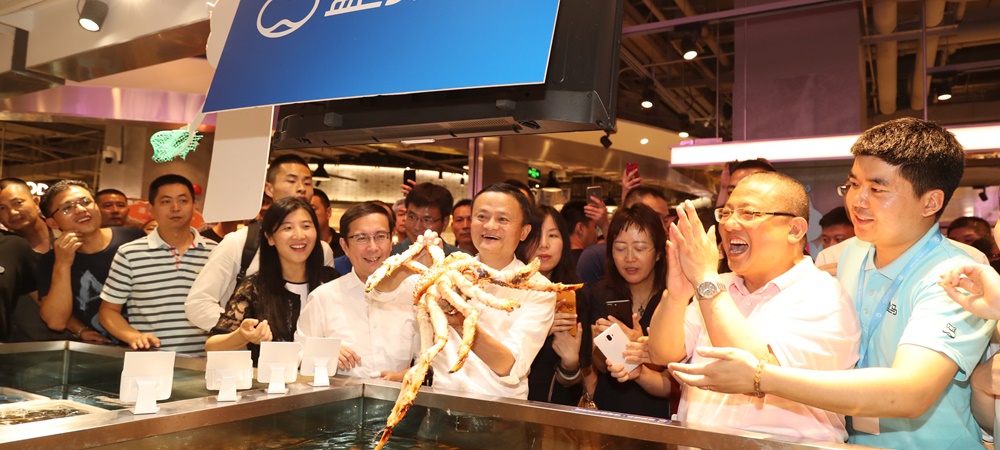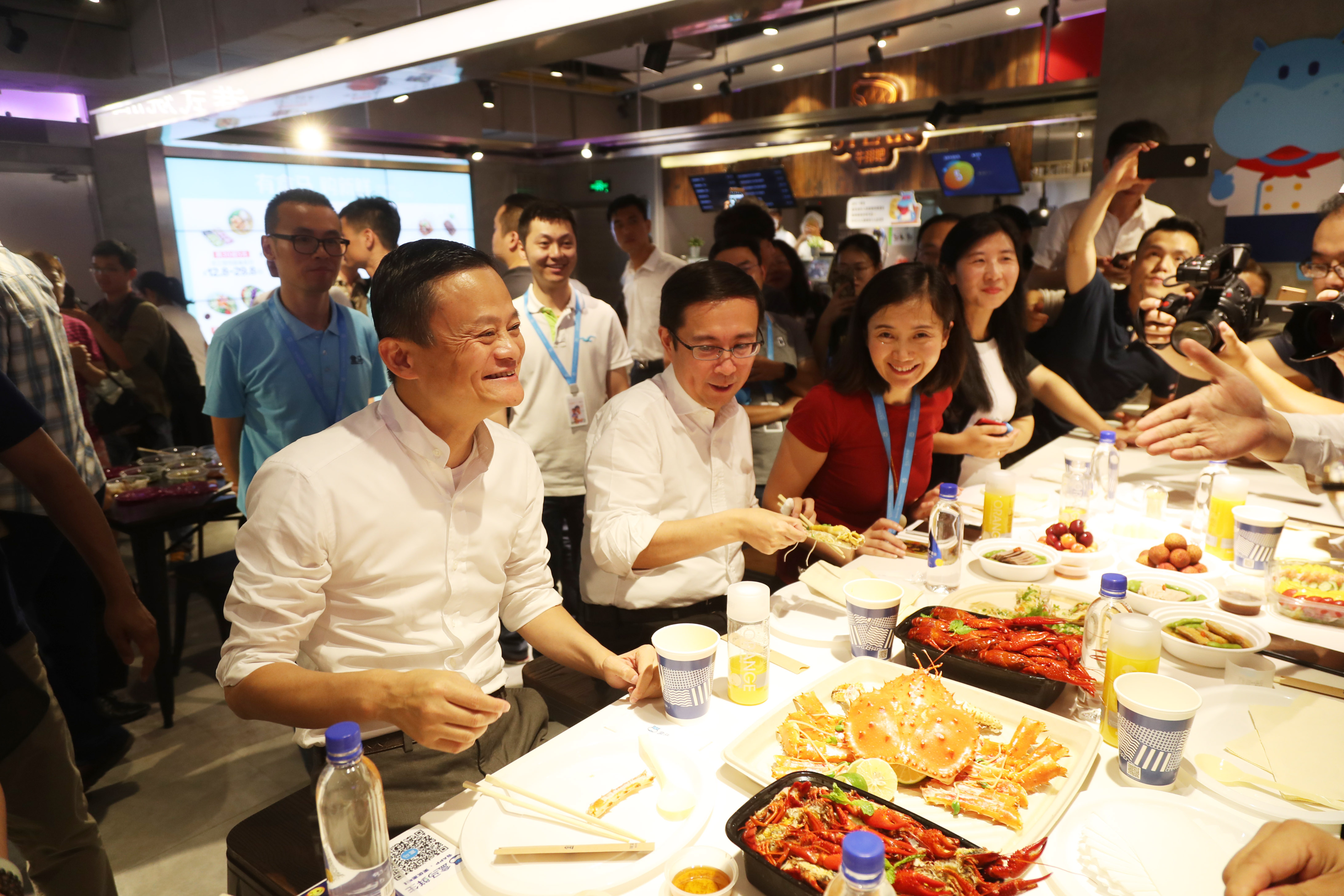Alibaba executive chairman Jack Ma in a Hema store via Alizila.
Chinese ecommerce giant Alibaba has ramped up its efforts to blend the online and offline shopping experience with the launch of three new supermarkets.
Located in Beijing and Shanghai, the Hema stores are part of Alibaba’s “New Retail” strategy, which uses tech and data to offer a more efficient and flexible shopping experience.
“We believe the future of New Retail will be a harmonious integration of online and offline, and Hema is a prime example of this evolution that’s taking place,” Alibaba Group CEO Daniel Zhang said in a statement.
“Hema is a showcase of the new business opportunities that emerges from online-offline integration.”
Everything in a Hema store is centred on mobile, with customers downloading the Hema smartphone app to begin shopping. This links to the customer’s Alipay account (Alibaba’s online payment platform) and is used both in-store and when shopping online.
Each item in the supermarket has a scannable barcode, which offers price and product information along with the origin and backstory of the item. To purchase, customers scan the code and complete their purchase through Alipay at a checkout register.
The in-store experience includes a fresh seafood section where shoppers can pick out their own live produce. Customers can choose to take the seafood home or have it cooked in-store while they complete the rest of their shopping.
Hyper-local shopping
While Amazon is currently still beta testing its innovative supermarket concept, Amazon Go, Alibaba has opened 13 Hema supermarkets since 2015. Each aims to serve a customer base within a three-kilometre radius.
This hyper-local approach means customers can shop at home using the mobile app and receive their order within 30 minutes, including ready-to-eat meals cooked by Hema chefs.
“Hema leverages data and smart logistics technology to seamlessly integrate online-offline systems, built to provide the unparalleled service of fresh food deliveries in 30 minutes,” said Zhang.
Hema is able to offer such speedy delivery because of its innovative fulfilment model. The stores double as warehouses and order-fulfilment specialists move through the aisles with a scanner, reusable shopping bag and a special barcode for each order.
They scan and pack the products before putting them on a conveyor belt that carries them to a delivery centre next to the store.
Jack Ma & Daniel Zhang at Hema via Alizila.
Experience enhanced by data
Because every purchase is logged through the Hema app, Alibaba has a massive amount of data available to help enhance its stores.
On the customer side, analytics offer up a personalised product page, and on the delivery side, machine algorithms plan delivery routes.
The barcodes on each item not only let customers trace a product’s origin and track delivery, but are also vital for Hema’s supply chain management system.
Positive signs
While it’s still early days for Hema, Alibaba said the first two years of operation have shown positive results.
Customers make 4.5 purchases a month on average, with online orders accounting for more than 50 per cent of total orders.
The company also said that the stores’ sales per unit area are three-to-five times those of other supermarkets.
However, Zhang isn’t interested in operating a large grocery chain. Instead, the aim is to showcase the benefits of “new retail” to customers and other businesses that want to digitally transform themselves.
Ecommerce currently accounts for around 15 per cent of total retail in China, and Alibaba has said its goal is not to make incremental progress on that, but to digitally transform the 85 per cent.
In other news…

Retail profile: We spoke to the CEO of made to measure menswear brand Indochino, Drew Green about how the retailer is changing the way men shop. Check it out for insights into customisation and why creating curated retail experiences matters.
Marketing: Word of mouth has long been seen as the best form of marketing, but this is hard to generate and maintain. Or at least it was, before the rise of Instagram and social media ‘influencers’. We take a look at how social media personalities can help sell your products.
Fulfilment: Does your shipping deliver? A new survey shows consumers are willing to switch retailers to get better delivery options like same day and weekend services.
Online retailing: Speaking of delivery, Australia Post says Aussie retailers are fuelling online shopping growth. There are some really positive signs that local retailers are keeping up with their overseas peers.
Want the latest retail news delivered straight to your inbox? Click here to sign up to the retailbiz newsletter.


